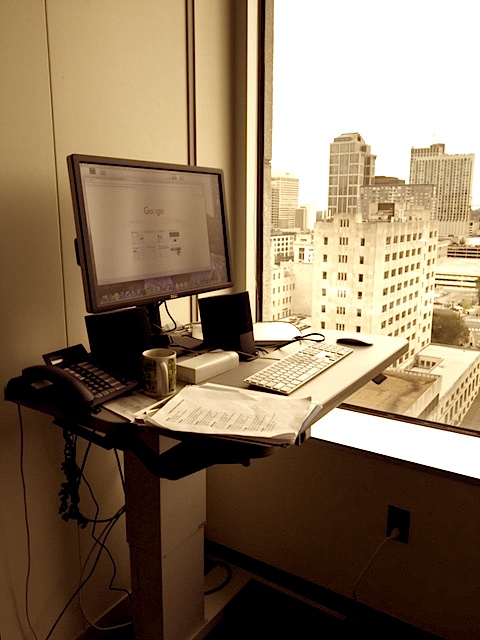A key component of TGC’s view of gospel-centered ministry is the integration of faith and work. We seek to help Christians work with distinctiveness, excellence, and accountability in their trades and professions. To aid in this effort we’re launching a new series, “How I Work,” in which we ask people to share their shortcuts, tools, and routines that help them do their jobs or fulfill their vocational roles. (The concept and format are borrowed from the excellent Lifehacker series on work.)
For the first interview in this series I talked to TGC blogger Trevin Wax.
What are your current vocational roles?
I am managing editor of The Gospel Project, a gospel-centered curriculum for all ages. I am also involved with various projects, authors, and teams at LifeWay.
What one word best describes how you work?
Intense.
What types of social media do you frequently use?
I’m on Twitter and Facebook, so most of my energy goes there. I save links by bookmarking articles on Feedly (RSS blog feeds) and then later, going back to read them and see what I might share. When I come across other interesting articles, I save them to the Pocket app, for reading later and possibly sharing. Overall, I use Twitter and Facebook to connect with people, and Feedly and Pocket to store interesting links for possible sharing.

At my Nashville office, I use a standing desk next that has an oversized monitor I can hook my laptop to. My home office is where all my books are, so I do most of editing and writing there. I alternate between sitting the desk and propping my laptop up on my bookshelf so I can stand.
What is your best time-saving shortcut?
When you have a project to do that is mentally taxing and takes your full attention, you will get it done faster if you eliminate all distractions. Put on noise-canceling headphones, put away your phone, use the Focus feature on your Word document, and so on.
Do you have an exercise routine?
I usually walk / jog at least five miles a day.
What are your work hours or daily routine?
I get up at 5 am. and spend time reading Scripture and praying. If I am going into the office, I leave before 6, and usually get home between 4:30 and 5 pm. On days I am working from home, I try to get the bulk of my writing/editing done in the early morning hours, and save the latter part of the day (after lunch) for emails and other tasks that are not as mentally taxing.
How do you manage what you have to do?
I have a to-do list on a notepad, and I scratch things off as I finish them. I also rely on my email inbox as an “electronic” to-do list.
Besides your phone and computer, what electronic tool can’t you live without and why?
I really love my battery-operated, noise-canceling headphones. They are terrific for long flights, and they eliminate distractions when I need to focus my work.
What book has helped you improve your productivity or work habits?
The Accidental Creative by Todd Henry. Great insights into the kind of work I do.
 What do you do to recharge?
What do you do to recharge?
During the week, I like to watch something on Netflix (usually a television show of some sort) with my wife, Corina, in the evenings after the kids go to bed. On weekends, I try to go biking on the greenway down by the river. Reading is a release as well.
Are you a morning person or a night owl?
Morning, for sure.
What’s your sleep routine like?
To bed between 9:30 and 10 pm. Up at 5 a.m.
Do you listen to music when you work?
Not during the intense times of focus. Often, I listen to classical piano or quiet music from favorite soundtracks. When I’m answering emails or doing things that don’t require too much attention (like this interview), I listen to other kinds of music. Right now, for example, it’s The Very Best of The Eagles.
Is there enough evidence for us to believe the Gospels?
 In an age of faith deconstruction and skepticism about the Bible’s authority, it’s common to hear claims that the Gospels are unreliable propaganda. And if the Gospels are shown to be historically unreliable, the whole foundation of Christianity begins to crumble.
In an age of faith deconstruction and skepticism about the Bible’s authority, it’s common to hear claims that the Gospels are unreliable propaganda. And if the Gospels are shown to be historically unreliable, the whole foundation of Christianity begins to crumble.



































